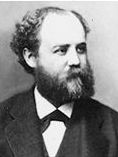Sulphur [Sulph]
It will be the remedy in acute diseases when after the administration of Mercurius the tenesmus and blood have ceased, but the mucus still persists.
A very strong characteristic symptom, which often indicates it in Dysentery, etc. is : The lips are of a rich color or the redness of the various orifices of the body.
It is best-adapted to chronic or persistent cases, esp. when tenesmus continues from one evacuation to another [Nux V.]; or when the bleeding and tenesmus have abated, the stools are still slimy, with frequent sudden urging; or particularly after tenesmus has ceased, mucus and blood are still discharged.
Zincum Sulph [Zinc-s]
It has several times cured sub-acute cases. The pains are referred to the sides of abdomen, probably in the colon.

